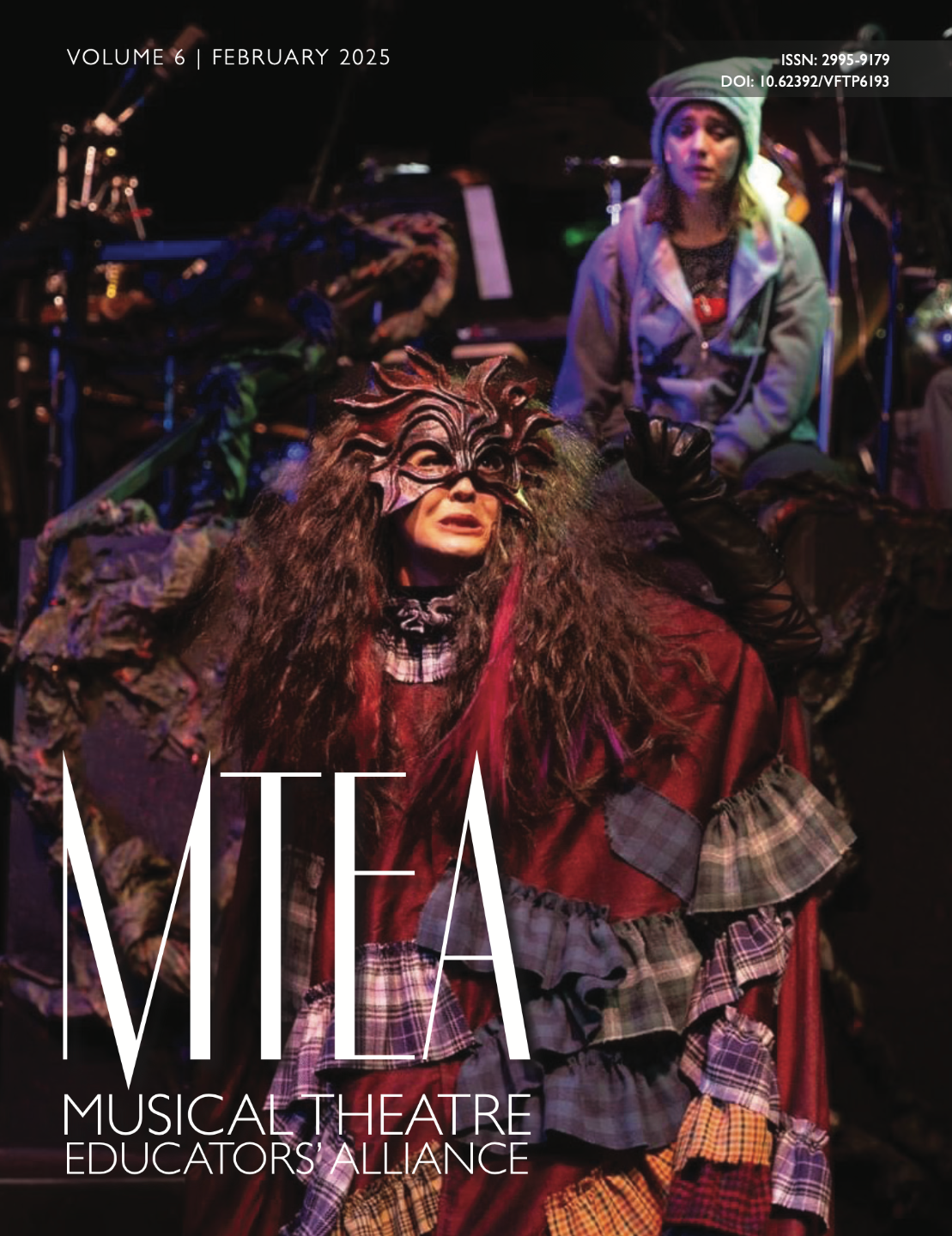RESEARCH
JOURNAL SUBMISSION GUIDELINES
SHAPE THE FUTURE
OF MUSICAL THEATRE EDUCATION
Not an MTEA Member?
Register NowFounded in 1999, the Musical Theatre Educators’ Alliance facilitates idea and method sharing among teachers of young professional artists to address common challenges in university and conservatory settings. We welcome submissions in a variety of formats (written text, digital, artwork). You do not need to be a member of MTEA to submit.
00
Days
00
Hours
00
Mins
00
Secs
SUBMISSIONS REQUIREMENTS
- There is no limit or requirement on submission length; however, the editorial staff reserves the right to edit for length. A general guideline is 2500 to 5000 words.
- You are encouraged to submit professional production high resolution photographs (minimum of 2) with your piece along with show information (place, date, director, title of
show) and photographer name. - Please follow APA style guidelines for in-text citations, works cited, and formatting. Make sure that all quoted material is appropriately cited and credited to its source. For more information, see:
https://owl.purdue.edu/owl/research_and_citation/apa_style/apa_formatting_and_style_
guide/index.html - Authors are responsible to acquire all permissions including photographs.
- Please submit in a Word (.doc or .docx) file and send via email to
journal@musicaltheatreeducators.org or submit online at
www.musicaltheatreeducators.org/contributors. - Include a 50-word bio for each author

EDITORIAL DECISIONS
1. Accepted
2. Accepted with minor revisions
3. Accepted with major revisions
4. Recommended for re-submit after substantial rewrite for current or future issues
5. Declined
*If your piece is selected for publication, you must sign a release giving permission for use by MTEA. If requested edits and rewrites have not been returned by the assigned deadline, the piece will not be published.
SUBMISSION CATEGORIES
- Articles: Peer-reviewed (double-blind), scholarly pieces that include citations beyond online or anecdotal sources.
- Pedagogical: Non-peer-reviewed pieces that offer specific methods or techniques for immediate classroom use based on current best practices or established methods (e.g., Meisner). Pieces will be edited for format and length.
- Interviews: Non-peer-reviewed interviews, subject to editing for format, style, and length.
- Feature Submissions: Non-peer-reviewed, topic-specific columns, subject to editing for format, style, and length.
- Book/Cast Album/Performance Reviews: Non-peer-reviewed reviews, subject to editing for format, style, and length.

SUBJECT AREAS
*Our focus is primarily on the college level (undergraduate and graduate) research and practice; however, submissions focusing on professional practice and/or high school instruction are welcome if relevant to our mission and members. We also seek interviews with notable people, as well as book, cast album, or performance reviews.
- acting
- singing
- music
- dance
- movement
- diversity, equity, & inclusion
- career preparation
- social media and publicity
- stage directing
- music directing
- choreography
- design or production
- film or digital musicals
- new media
- composition
- lyric writing
- musical theatre history
- new work development
- entrepreneurship
- producing
- healthy-physical, mental
- tenure & promotion
- career concerns
- workplace issues
- audition techniques
- recruitment
- industry trends
- studio ownership & practices
- copyright
Ready to Submit?
Peer-reviewed Articles:
Explore the journal





